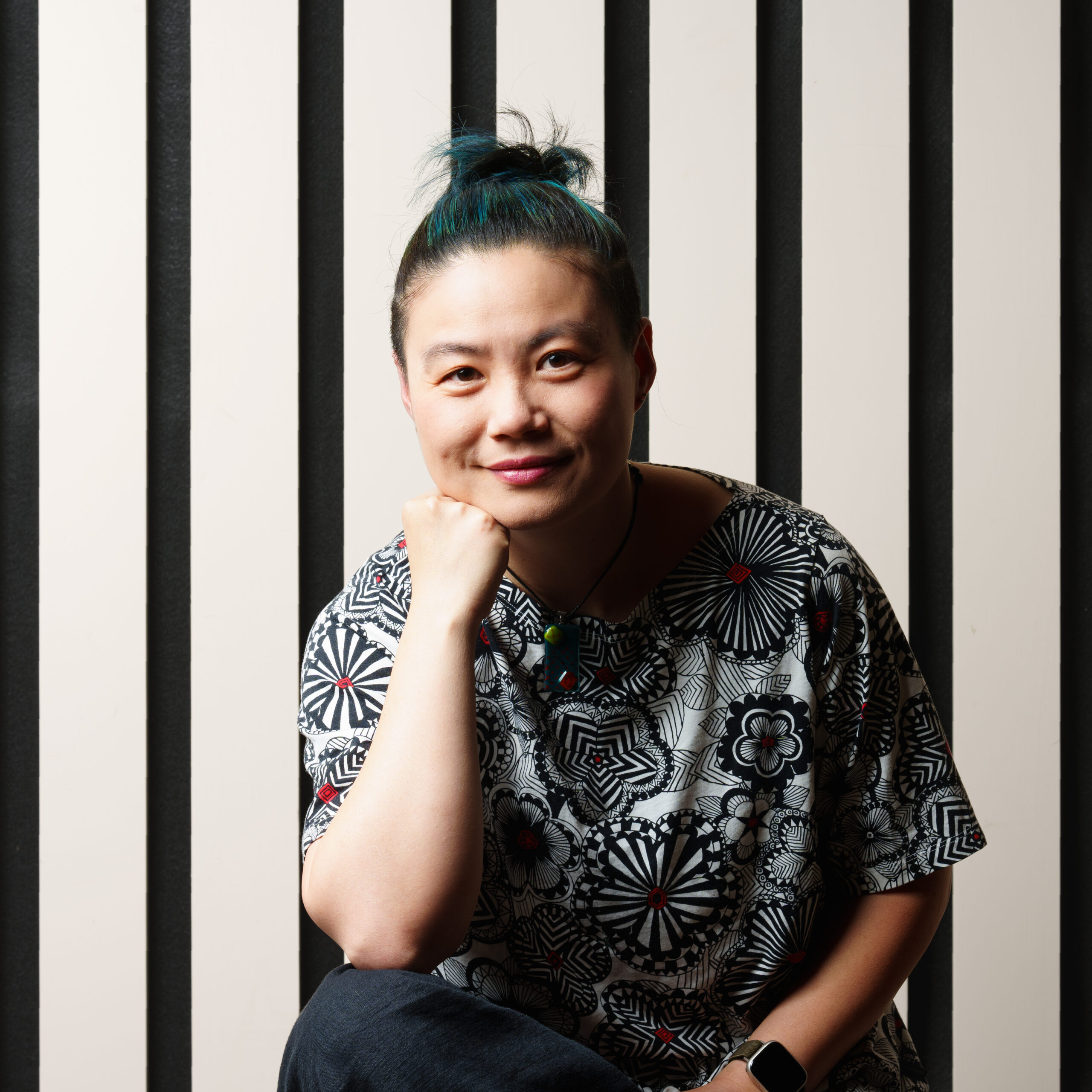
WANG JIE
General Management
Susanna Stefani Caetani
susanna@onlystage.co.uk
biography
Many consider Wang Jie's stylistic versatility a rare trait among today's composers. One day she spins a few notes into a large symphony, the next she conjures a malevolent singing rat onto the opera stage. Unveiling poetry in the human condition, re-bearing the beauty of classical music, and paving new paths for lasting public engagement are at the heart of her artistry.
At age 4, Jie began training on the piano and composition in the private studio of the esteemed composer and pianist Yang Liqing, which lasted for 14 years. In an essay, Jie affectionately wrote: "He was my hero. I was determined to become his clone, giggles and all.” At 29, Jie's Carnegie Hall debut was a career-launcher. She not only surprised the American Composers Orchestra by composing a miniature opera for the concert stage, Jie also shape-shifted to become a character in her own opera "From the other sky", swiveling between several keyboard instruments and undergoing several costume changes.
Earlier in her career, her Symphony n.2, commissioned and premiered by the Detroit Symphony Orchestra under the baton of Leonard Slatkin was streamed live to a worldwide audience. You might have also heard about her second concert opera: "It rained on Shakopee". This opera is based on her experience at the Minnesota state prison where she mentored inmates. At the end of the opera, 11 of the inmates and their recorded voices are heard singing with the orchestra. Hearing their voices, from inside the prison walls, was especially moving for concert-goers.
During the three years of pandemic America, Jie's "Symphony n.1" was the most-broadcast symphony on public radio, reaching 1.5 million world-wide listeners each airing. A popular concert opener, her "Symphonic overture - America the Beautiful" is adored by tens of thousands of live audiences across the United States each year.
Now that the concert stage has unpaused, in the year 2022 alone, Jie has enjoyed several world premieres with the Buffalo Philharmonic Orchestra, the Colorado Music Festival, the Cathedral of St. John and Divine, and The Apollo Chamber Players. Most recently, Jie is among the first group of composers to receive commissions from the Chamber Music Society at Lincoln Center and Music@Menlo. In an interview with the Strad Magazine, Jie said "I desperately want classical music audiences to feel...a sense of kinship, to feel at home with my music even if it’s the first hearing, to want more of my music for its truthfulness."
During the Russian Invasion of Ukraine, Jie decided to visit Ukraine to support the Lviv National Philharmonic in person. The orchestra performed two of her symphonies, while live streaming the concert to a world-wide audience. What Jie said to the audience was, "Death doesn’t scare me. What I fear the most is if my music failed to move people who already love music, or failed to speak beyond all kinds of divide, be it geographical or cultural. "
Jie holds a Ph.D. in music theory and composition from New York University. Her dissertation was an interdisciplinary investigation of extraordinary artistic creativity through the lenses of Symbolic Philosophy, Psychology and Neuroscience. Previously, she obtained Artist Diploma from the Curtis Institute of Music, Master and Bachelor of Music from the Manhattan School of Music. Not one to ever stop learning, aside from her career as a composer, Jie is a devoted student of Indian classical dance and the percussion instrument mridangam.
press
"Working with Jie was like observing the formation of a glorious rainbow. No matter how heavy the fog, her music find its way to a radiant smile."
Inmo Yang
"Wang lie is a unique and complex voice, combining a fierce intelligence with a vulnerable beauty in orchestral music that virtually shimmers with color."
Joann Falletta
"Wang Jie is a musical polyglot whose compositions draw influences from styles across the globe — a musician with a great sense of humor and natural theatrical flair."
Derek Bermel
"Wang Jie's score expressed and intensified the story as only opera can do - that is, opera in the hands of genius. Her sense of vocal line, her deft use of orchestral timbre, her combination and juxtaposition of interesting textures, her feel for musical pacing, combined to make a work of art greater than its parts. Words fail me."
Warren Frisen